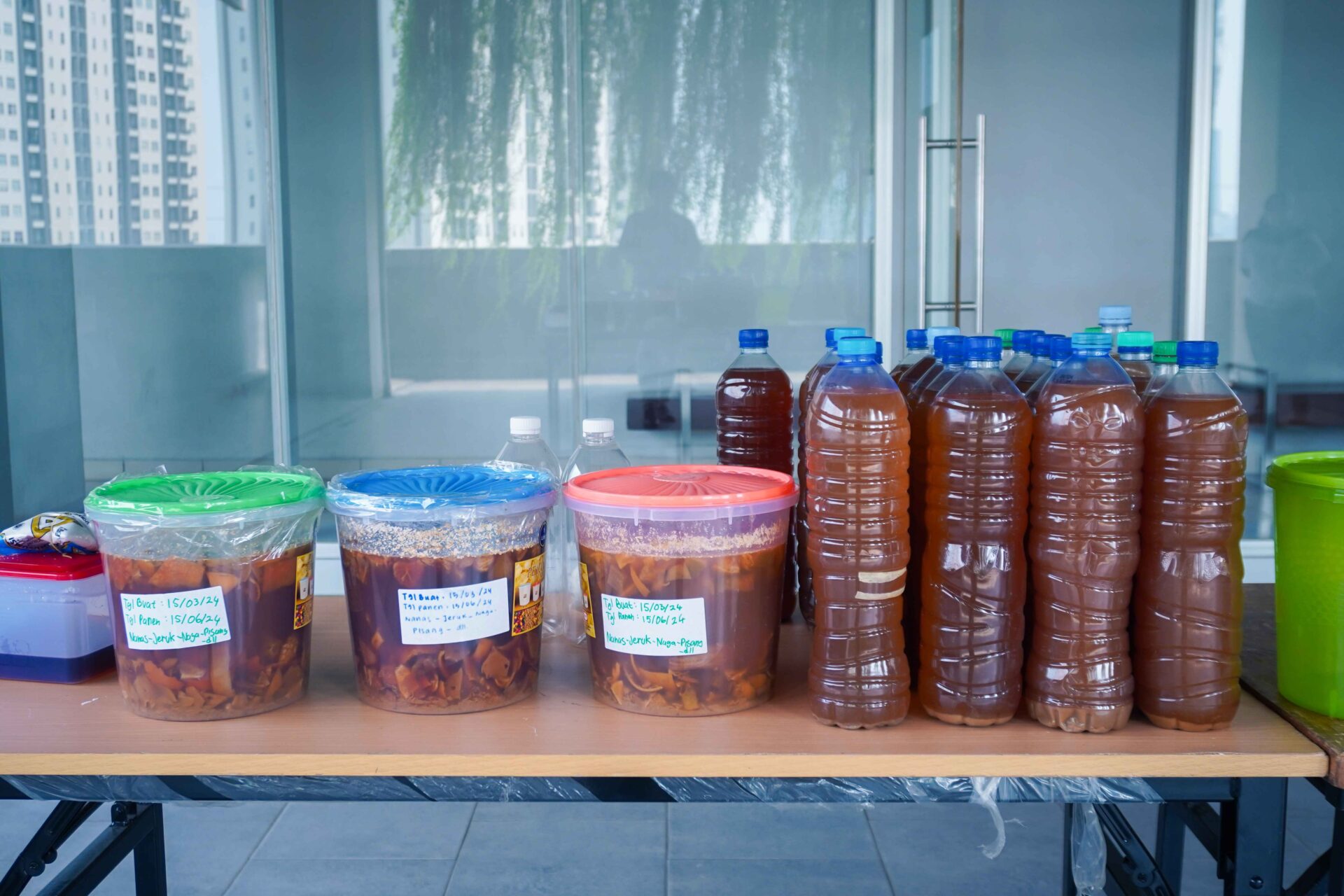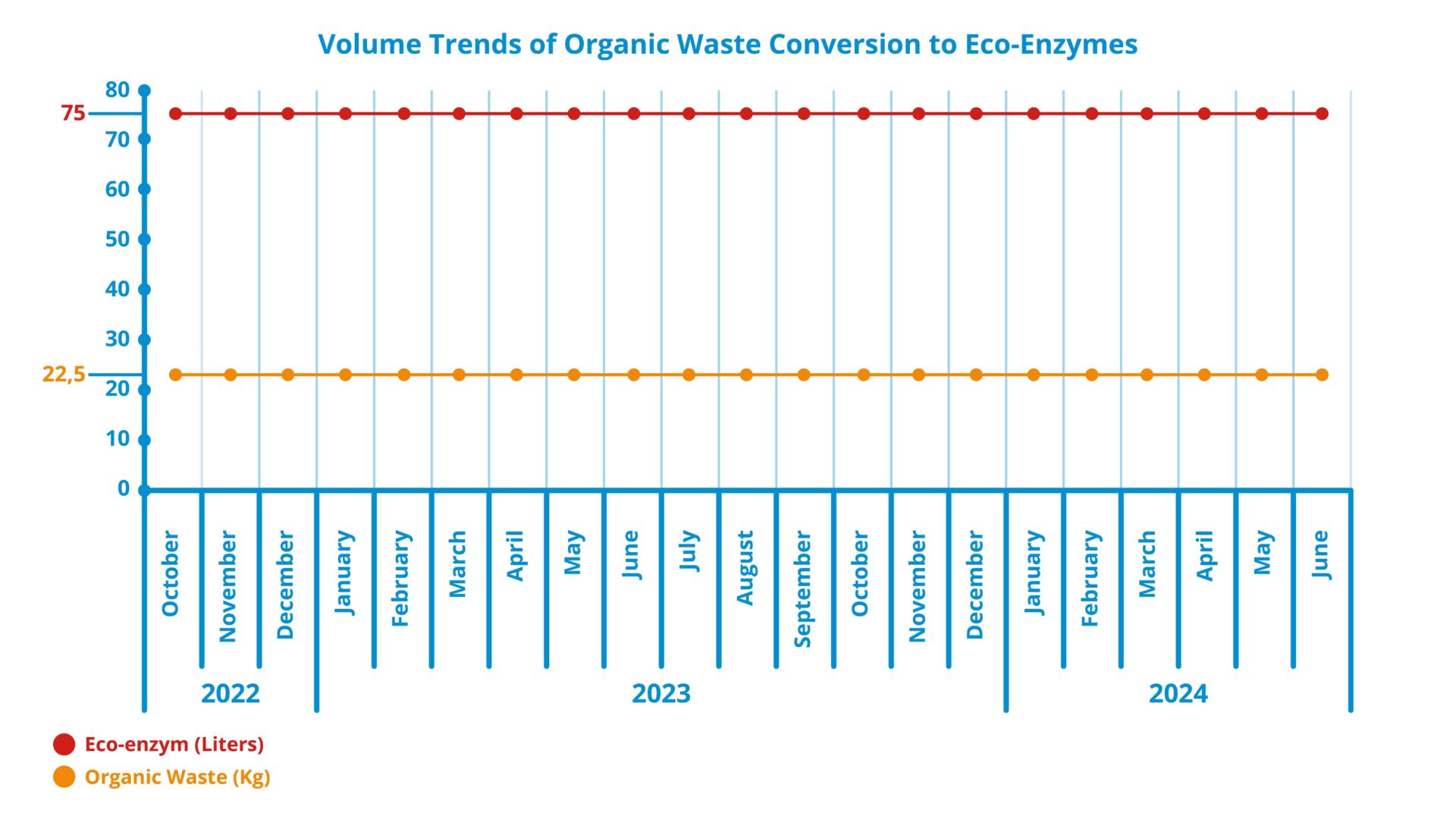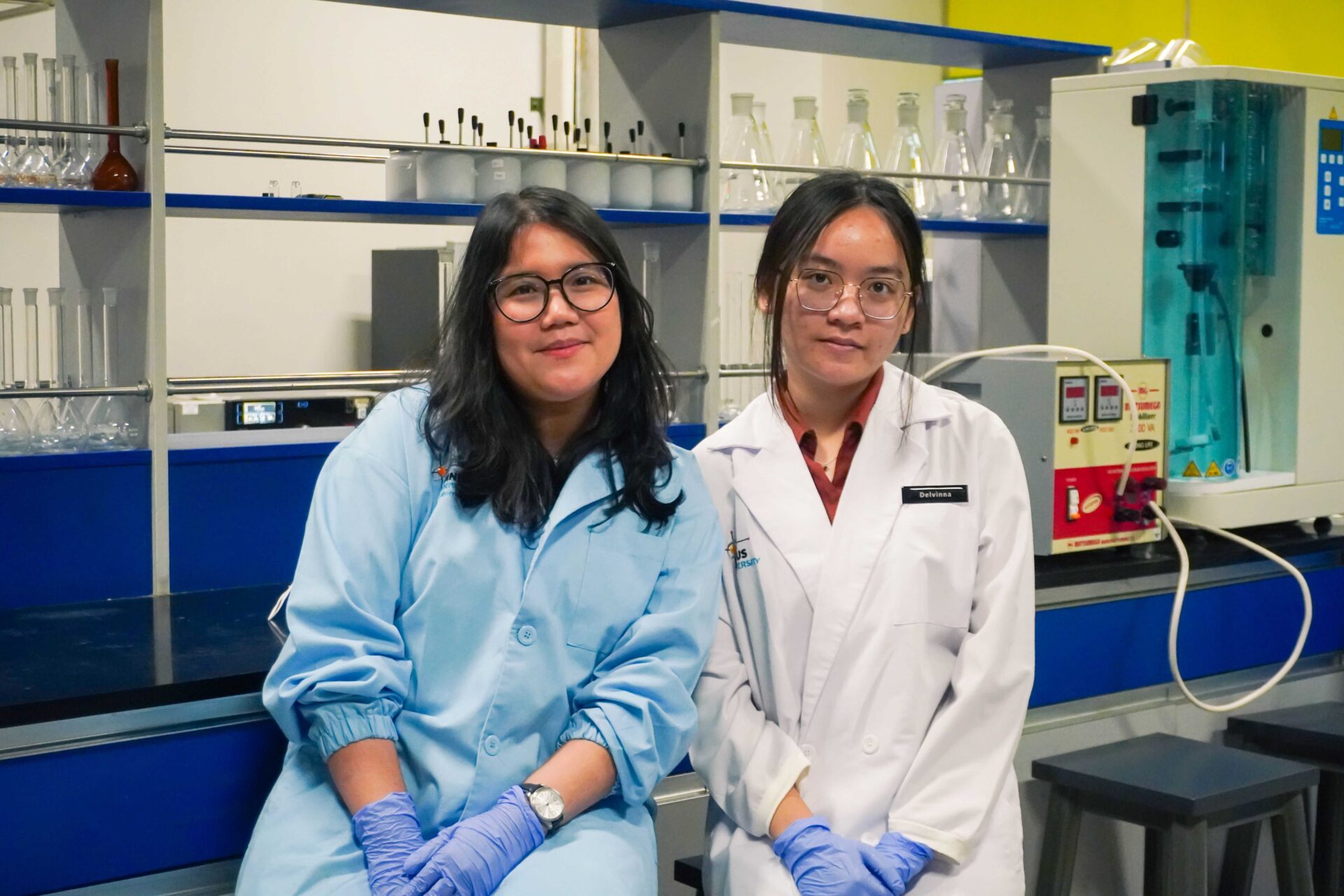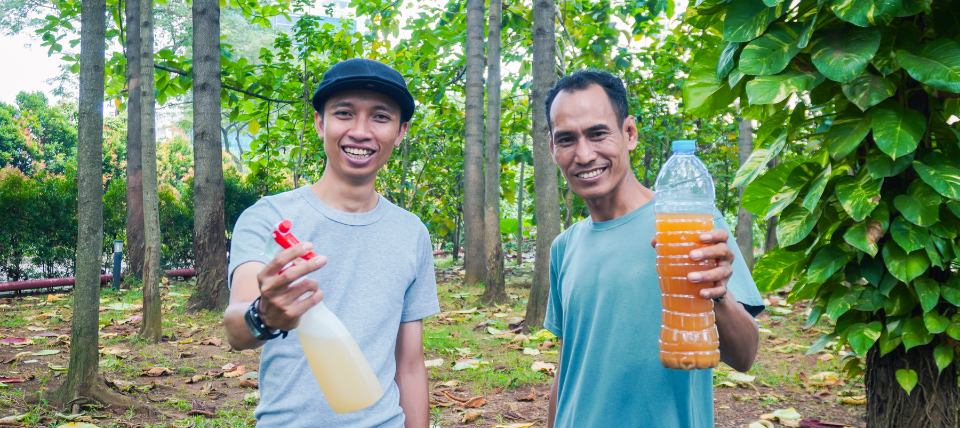Tangerang— We realized that waste management is everyone’s business; therefore, we start from within. Since 2022, the BINUS University’s Building Management has launched an eco-enzyme project utilizing fresh organic waste. They collaborate with food and juice vendors at the Alam Sutera Campus to collect fruit peels and vegetable scraps, initiating fermentation to produce eco-enzymes!
If you’re unfamiliar, eco-enzymes are natural cleaners from food scraps such as fruit and vegetable peels. Instead of throwing away these scraps, mix them with water and sugar, let them sit for a few months, and then have this unique liquid. The liquid has many uses, including effective cleaning, pest control, and organic farming enhancement. What’s remarkable is that it’s gentle on Mother Nature!

(Photo Credit: Mufti Warits)
“Over nearly two years, the eco-enzyme project has successfully produced approximately 1,500 liters of eco-enzyme, recycling around 450 kg of organic waste, which means they have transformed approximately 22.5 kg of organic waste into 75 liters of eco-enzyme each month. This sustainable practice reduces nearly 1 kg of organic waste daily at the Alam Sutera Campus, marking a significant step towards achieving BINUS University’s Green Campus goals,” as Mr. Suhendra from the Building Management team expressed.
Although the number might be small, the liquid has been utilized for those purposes around the campus, which makes it remarkable since you are ensuring that you don’t make any waste.

(Graph Illustration: Mufti Warits)
One of the challenges that the team is trying to advocate is to secure a monthly production. However, collaboration with the students, staff, and faculty is essential. One of them, Dr. Dwiyantari Widyaningrum, S.Si., M.Si., Head of the Biotechnology Department, has led practical learning sessions where students transform raw eco-enzyme into finished products like bar soaps and detergents. They then test these products’ effectiveness by measuring bacterial levels after use.

“Enhanced marketing efforts and partnerships with local businesses and communities are also essential steps to broaden distribution channels and raise public awareness of eco-enzyme benefits and effectiveness,” said Dr. Dwiyantari. After conducting successful bacterial tests on bar soap, they intend to convert eco-enzymes into liquid soap and utilize the eco-enzyme liquid for water treatment at our campuses.
Looking ahead, BINUS University is committed to scaling up eco-enzyme production and promoting sustainable practices across all its campuses and beyond. Sustainability is part of our commitment to envision our mission of fostering and empowering society in building the nation.
(Words by: Mita Adhisti/ Editor: Hamzah Ramadhan)
... ... ...